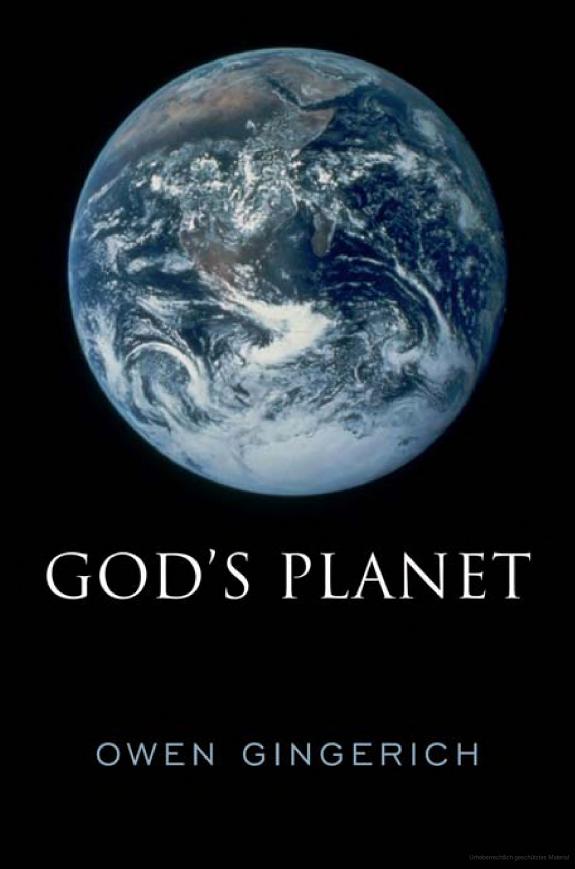God's Planet
God's Planet
by Owen Gingerich
192 pages, Harvard University Press (October 22, 2014)
http://www.amazon.com/dp/0674417100/
With exoplanets being discovered daily, Earth is still the only planet we know of that is home to creatures who seek a coherent explanation for the structure, origins, and fate of the universe, and of humanity’s place within it. Today, science and religion are the two major cultural entities on our planet that share this goal of coherent understanding, though their interpretation of evidence differs dramatically. Many scientists look at the known universe and conclude we are here by chance. The renowned astronomer and historian of science Owen Gingerich looks at the same evidence—along with the fact that the universe is comprehensible to our minds—and sees it as proof for the planning and intentions of a Creator-God. He believes that the idea of a universe without God is an oxymoron, a self-contradiction. God’s Planet exposes the fallacy in thinking that science and religion can be kept apart.
Gingerich frames his argument around three questions: Was Copernicus right, in dethroning Earth from its place at the center of the universe? Was Darwin right, in placing humans securely in an evolving animal kingdom? And was Hoyle right, in identifying physical constants in nature that seem singularly tuned to allow the existence of intelligent life on planet Earth? Using these episodes from the history of science, Gingerich demonstrates that cultural attitudes, including religious or antireligious beliefs, play a significant role in what passes as scientific understanding. The more rigorous science becomes over time, the more clearly God’s handiwork can be comprehended.
God's Universe
by The Same Author
160 pages, Belknap Press, 2006
http://www.amazon.com/dp/0674023706/
We live in a universe with a very long history, a vast cosmos where things are being worked out over unimaginably long ages. Stars and galaxies have formed, and elements come forth from great stellar cauldrons. The necessary elements are present, the environment is fit for life, and slowly life forms have populated the earth. Are the creative forces purposeful, and in fact divine?
Owen Gingerich believes in a universe of intention and purpose. We can at least conjecture that we are part of that purpose and have just enough freedom that conscience and responsibility may be part of the mix. They may even be the reason that pain and suffering are present in the world. The universe might actually be comprehensible.
Taking Johannes Kepler as his guide, Gingerich argues that an individual can be both a creative scientist and a believer in divine design--that indeed the very motivation for scientific research can derive from a desire to trace God's handiwork. The scientist with theistic metaphysics will approach laboratory problems much the same as does his atheistic colleague across the hall. Both are likely to view the astonishing adaptations in nature with a sense of surprise, wonder, and mystery.
In God's Universe Gingerich carves out "a theistic space" from which it is possible to contemplate a universe where God plays an interactive role, unnoticed yet not excluded by science.

